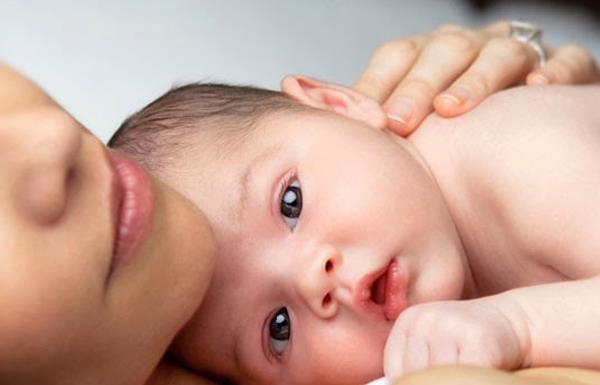In the first 24 hours after birth, what's special about taking care of a newborn baby? What do you need to pay attention to to help your baby adapt well to the outside environment? Refer now!
content
1. Keep your baby warm
2. Breastfeeding
3. How to take care of a newborn baby: Hold the baby properly
4. How to take care of a newborn baby: Pay attention to diaper changes
If nothing is wrong, the baby is born healthy, safe, the baby will be transferred to the mother after medical follow-up for the first few hours. Newborn baby care at this time will be entirely done by parents. Doctors and nurses only support in cases of need or special problems about the health of mother and baby.

Not every mother knows the best way to take care of a newborn baby
1. Keep your baby warm
When in the womb, the baby has an ideal temperature environment. When going to the outside environment, there is a change in temperature that causes the child's body to adapt. At this time, the body's temperature adaptation mechanism is very poor, children need to be kept warm immediately and continuously. After cleaning the body, the baby pants are dried, warmed to avoid hypothermia.
The baby's room temperature should be maintained at 26 - 32 degrees C. Infants should always be in warm arms, receiving the comfort of their mothers. In addition, if your baby has wet diapers or diapers, they need to be changed immediately, dry and wear new diapers and diapers to avoid cold infections and other skin problems.
2. Breastfeeding
Immediately after birth, the baby needs to be breastfed. Breast milk provides adequate nutrients, water, especially antibodies to help children fight disease. At the same time, breast milk also helps your baby feel more warm and secure. Furthermore, breast milk during this period is mostly colostrum. Colostrum (which is a yellow solution) contains important immune substances and has a mild laxative effect to help clean the baby's intestines, and also has protein and fat for the first feedings of your baby.
Things you need to pay attention to
- The infant's teaching is very small, can only hold 30-90ml for a breastfeed. During the first 24 hours, every 2-3 hours, the mother can breastfeed her baby once.
- Do not lie down while breastfeeding, because it is easy to choke the baby.
3. How to take care of a newborn baby: Hold the baby properly
Newborn baby bones are very soft, especially in newborn babies. Therefore, mothers should be very careful when holding babies. Pay attention to use one hand to support the head and neck, the other hand support the buttocks and try to hold the baby close to your lap. Cuddling and petting will help create a better connection between mother and baby, and also help stimulate senses to develop.
If you put your baby on the bed, the mother notes not to use a mattress that is too soft or too hard and does not use a pillow that is too high, because it will adversely affect the child's bone development. Absolutely do not hold the baby, shake or shake the baby too hard.

Absolutely never shake your child! Baby shaken syndrome occurs when a baby is shaken, swayed too much, causing serious effects on the child's brain, which can result in lifelong trauma such as blindness, paralysis, or even death. Children under 1 year of age are in the highest risk group. However, it is absolutely best not to shake the child even in ...
Within the first 24 hours after birth, the average baby may need 5-6 or more diapers, depending on the condition. Breast milk is easier to digest than formula. Therefore, breastfed babies may need to go to the toilet more often.
The mother should note that infant feces during this period are often thick, dark or yellow in color. This is called poop, you don't need to worry too much. Only when you find that your baby has passed out white mucus or has red spots, do you need to notify the doctor.













